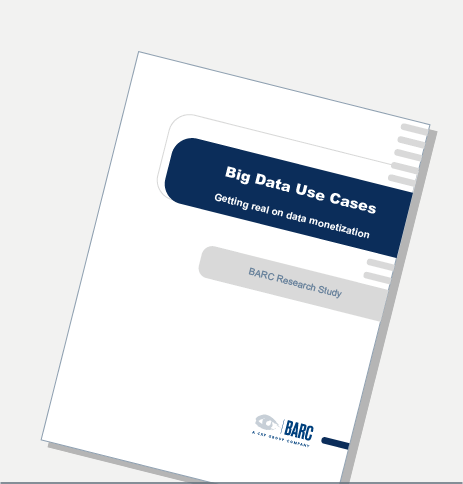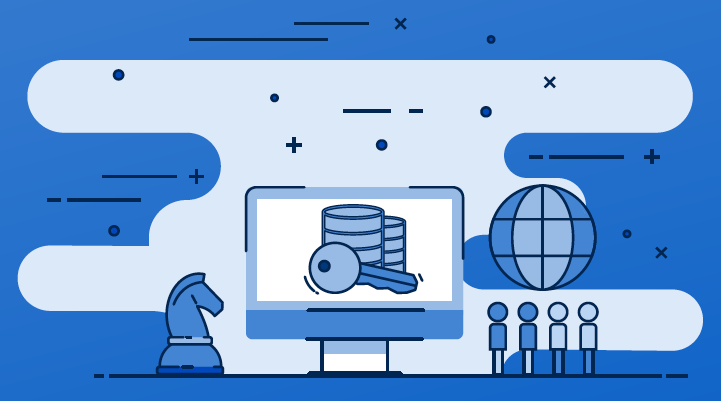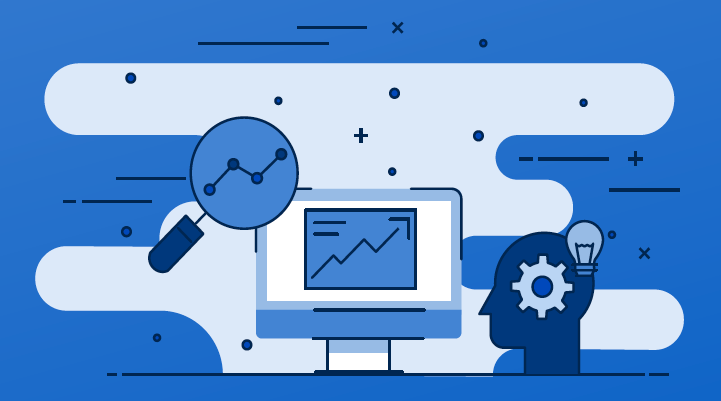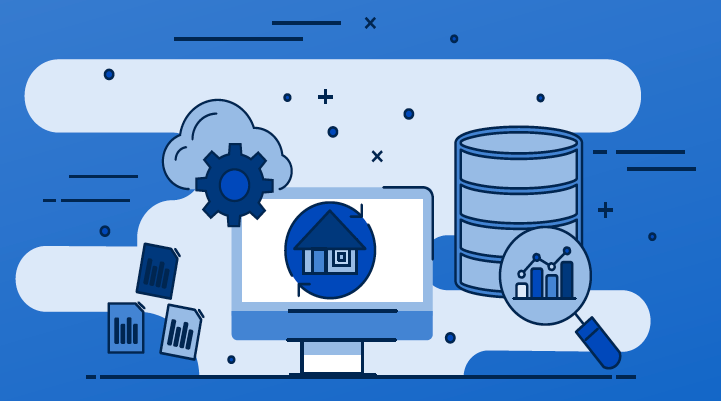Insufficient skills are curbing the big data boom
While big data analytics offers enormous benefits and advantages, there is no doubt that its implementation poses formidable challenges, especially with regard to building analytical and technical knowledge, as well as efficiently redesigning in-house IT landscapes.
Although the spectrum of application scenarios for big data is unlimited, organizations particularly focus on improving their business through heightened transparency and efficiency. In this respect, impressive project plans exist for individual application scenarios with those concentrated on forecasting being most prominent.
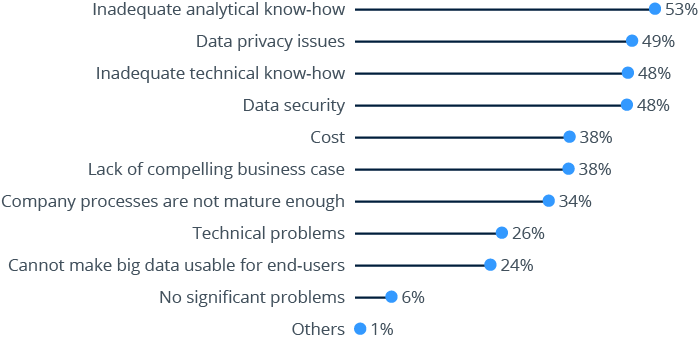
What problems companies see when using big data technologies/analysis? (n=545)
Big data is revolutionizing business
We anticipate that big data analytics will increasingly, and in different ways, contribute to the success of businesses by the creation of a more transparent basis for data-driven decision-making, the configuration of processes leading to greater efficiencies, the raising of forecast reliability and the acceleration of promising innovations.
Big data is no longer just a buzzword: our studies show that a transformation has begun which will lead to a new era of business modeled on a data-driven economy.
6 recommendations for a successful big data analytics initiative
There are a few important points to be tackled when going forward with your big data analytics initiative. To ensure you get the most benefits out of your big data analytics initiatives, we recommend you do the following:
- Now is the time to start your big data initiatives! The respondents in this study show that there are many different use cases and substantial benefits to be attained from analyzing big data. Start with a pilot project that incorporates different departments, data types and processes.
- Be creative! Give your employees the opportunity to evaluate the many examples in this study as potential use cases in your company. More importantly, give them the leeway to make their suggestions as to how data can help improve specific processes or business models.
- Start training your existing staff while scouring the labor market for technical and analytical expertise in big data. You’ll need it.
- Draft an enterprise data strategy that includes big data and all other information. By categorizing your data into privacy classes and security zones with appropriate guidelines and responsibilities, you can help make data privacy and security more tangible and reduce uncertainty.
- Keep in mind that big data projects are often explorative when it comes to data. Regular business intelligence methods are not the right standard. Data experiments must be able to fail quickly so that users can learn from them and move closer to a good – or perhaps even a groundbreaking – solution.
- Top management is an important driver, but you also need protagonists at other levels of the business. These leaders can ensure that the various business cases integrate into day-to-day activities.
Big Data Use Cases Report
Getting real on data monetization
Request the free report now